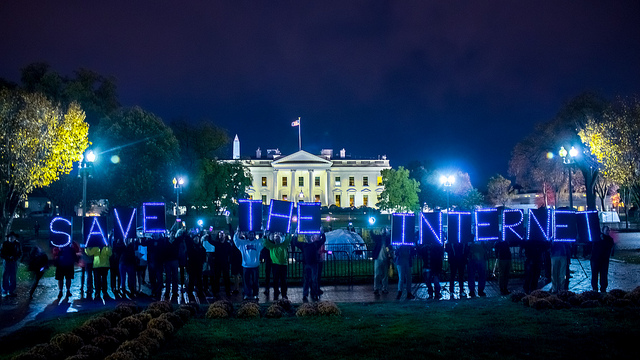The FCC’s Newest Net Neutrality Plan Is Finally What We Wanted
Finally, some "Net Neutrality" rules that actually uphold Net Neutrality.

FCC Chairman Tom Wheeler has just announced the agency’s new Net Neutrality proposal, and it’ll finally reclassify broadband Internet as a public utility. You did it, trolls!
A lot has changed since the FCC’s proposed rules for “Protecting and Promoting the Open Internet” went up for public review and comment. The 4 million comments the rules attracted generally expressed a concern that they didn’t go far enough to protect different kinds of Internet traffic from being treated unfairly by Internet service providers, and it seems the FCC has listened.
Wheeler announced that the updated rules—which are expected to go to an FCC vote on February 26 and likely pass—will include reclassification of broadband Internet service as a public utility under updated “Title II” provisions, as President Obama and basically the entire Internet wanted—aside from the ISPs.
Wheeler wrote in his announcement,
That is why I am proposing that the FCC use its Title II authority to implement and enforce open internet protections.
My proposal assures the rights of internet users to go where they want, when they want, and the rights of innovators to introduce new products without asking anyone’s permission.
To preserve incentives for broadband operators to invest in their networks, my proposal will modernize Title II, tailoring it for the 21st century, in order to provide returns necessary to construct competitive networks. For example, there will be no rate regulation, no tariffs, no last-mile unbundling. Over the last 21 years, the wireless industry has invested almost $300 billion under similar rules, proving that modernized Title II regulation can encourage investment and competition.
Congress wisely gave the FCC the power to update its rules to keep pace with innovation. Under that authority my proposal includes a general conduct rule that can be used to stop new and novel threats to the internet. This means the action we take will be strong enough and flexible enough not only to deal with the realities of today, but also to establish ground rules for the as yet unimagined.
It looks like these rules do everything they can to give people the reclassification they were asking for while also addressing concerns, whether real or political, that making the Internet a utility for regulatory purposes would negatively impact service prices or not account for possible future changes.
The full text of the rules hasn’t been made public yet, and even after the rules pass, there could still be lawsuits from ISPs challenging the FCC’s authority to enforce them and bills from Congress to supplant them, but this is the first sign that things are going in the right direction.
(via Wired, image via Joseph Gruber)
Are you following The Mary Sue on Twitter, Facebook, Tumblr, Pinterest, & Google +?
Have a tip we should know? tips@themarysue.com